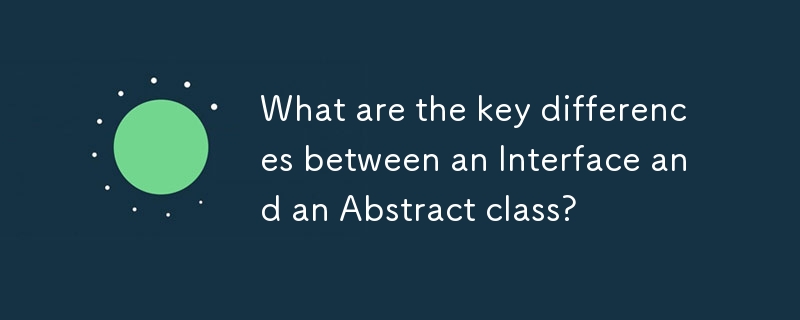

Interface
interface Animal {
void makeSound(); // Method declaration
}
class Dog implements Animal {
public void makeSound() {
System.out.println("Bark");
}
}
abstract class Vehicle {
abstract void start(); // Abstract method
void stop() {
System.out.println("Vehicle stopped"); // Concrete method
}
}
class Car extends Vehicle {
void start() {
System.out.println("Car started");
}
}
When to Use What?
Use Interface When:
Use Abstract Class When:
Both interfaces and abstract classes are powerful tools in Java, and choosing between them depends on your application's needs. Use interfaces to define behaviors across unrelated classes and abstract classes for shared code in a class hierarchy.
By understanding their differences and strengths, you can write cleaner and more maintainable code. Happy coding! ?
The above is the detailed content of What are the key differences between an Interface and an Abstract class?. For more information, please follow other related articles on the PHP Chinese website!




